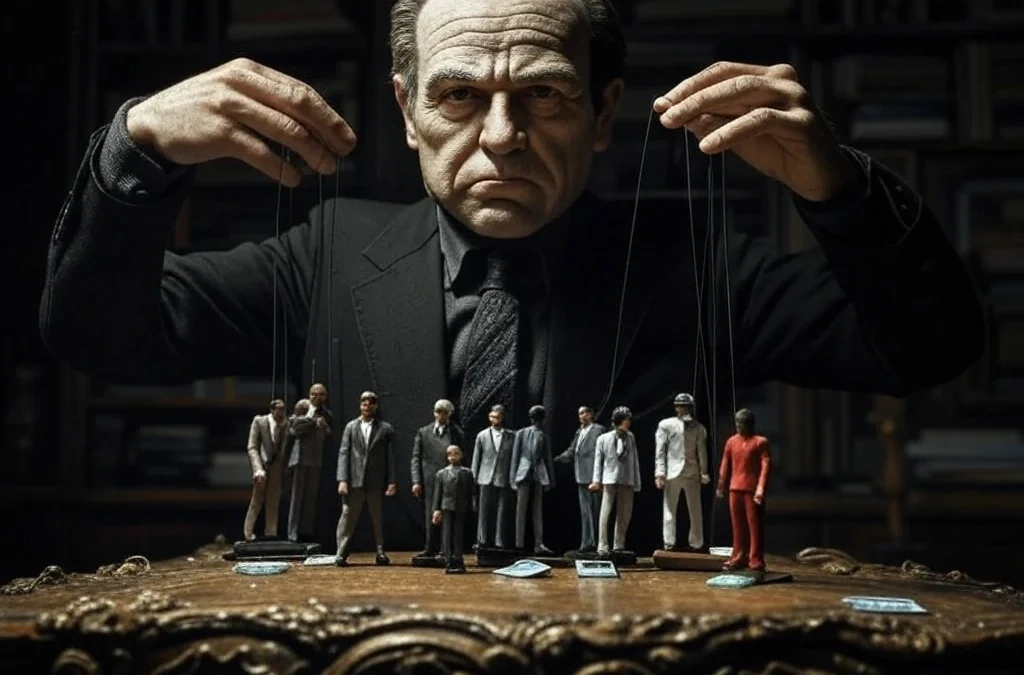Cynicism is something most people have seen, heard, or even felt – but few stop to really think about what it means. It shows up in jokes, in conversations, and in quiet thoughts we don’t always say out loud. Some people wear it like armor. Others see it as honesty. But what exactly is cynicism, and why does it matter?
In this article, we’re breaking down the meaning of cynicism, what cynical behavior looks like, and why it shows up in so many parts of life. From work and relationships to daily interactions, we’ll look at the most common and relatable examples of cynicism. If you’ve ever wondered whether you – or people around you – might be more cynical than you realized, this guide will help you understand it better.
Whether you’re curious, skeptical, or just tired of fake smiles and empty promises, understanding cynicism can shine a light on how people think, why trust feels risky, and what it really means to expect the worst.
What Is Cynicism?
Cynicism is the belief that people are mostly motivated by self-interest, not by genuine kindness, honesty, or morality. A cynical person often doubts the sincerity of others and expects hidden motives behind good actions. Instead of trusting words or intentions, they usually assume people act out of selfishness, greed, or manipulation.
In daily life, cynicism can show up as sarcasm, constant skepticism, or distrust in institutions, relationships, and even small acts of kindness. While some see it as realistic thinking, excessive cynicism can lead to negative thinking, damaged relationships, and emotional distance.
The Best Examples of Cynicism and Cynical Behavior
Cynicism shows up in many parts of daily life – often without people realizing it. Below are some of the clearest, real-world examples of cynical thinking and behavior. Each one helps explain what cynicism looks like in action.
1. Expecting People to Lie in Everyday Conversations
A cynical person usually expects dishonesty from others, even in simple conversations. For instance, when a colleague says they’re sick, a cynical response would be, “Yeah, sure they are,” assuming they’re probably lying to avoid work. This distrustful outlook highlights cynicism clearly, revealing a belief that people aren’t genuine and usually have selfish motives.
2. Believing Politicians Always Have Hidden Motives
Many people show cynicism by assuming all politicians say things only to win votes or gain power. For example, hearing a political leader promise improvements, a cynical reaction would be: “They’re only saying that because elections are coming.” This illustrates the deep-rooted suspicion that politicians rarely act sincerely.
3. Doubting True Friendship Exists Without Benefit
Cynicism often appears when someone doubts true friendship. Imagine hearing someone describe friendship as just a transaction—like friends who hang out together only because each gains something. A cynical person would think, “No one stays friends unless they benefit.” This cynical viewpoint suggests a lack of trust in genuine human connection.
4. Thinking Kind Acts Are Always Selfish
If someone donates money or helps others publicly, a cynical view is: “They’re only doing it for attention.” Cynics usually suspect hidden selfish motives behind seemingly kind actions. This perspective dismisses the possibility of sincere kindness, implying that generosity is merely disguised self-interest.
5. Assuming Relationships Won’t Last
Cynicism clearly surfaces when someone assumes romantic relationships always fail. Seeing a happy couple, a cynical thought might be: “It won’t last; they’ll break up eventually.” This pessimistic view about love and relationships reflects the core idea of cynicism—that good things rarely end well.
6. Believing Promotions Are Unfair and Biased
Imagine a coworker getting promoted. A cynical employee immediately thinks, “They got promoted because they’re friends with the boss,” ignoring merit entirely. Cynicism makes people see workplaces as unfair and unjust, undermining trust and morale. It’s a common attitude in offices where favoritism seems normal.
7. Viewing News Stories as Manipulative
When watching the news, cynics often think reporters twist facts to fit a narrative. Hearing any news story, a cynical person might say, “They’re exaggerating to make it sound worse,” or “They just want higher ratings.” Cynicism about media implies distrust and suspicion toward how news stories are presented to the public.
8. Suspecting People Only Care About Money
Many cynical views come down to money. For example, if someone chooses a career for passion, a cynical person might say, “Wait until they realize it’s all about money.” This suggests a belief that eventually everyone acts out of financial self-interest, undermining ideals like passion or fulfillment.
9. Assuming Compliments Are Insincere
If someone receives a genuine compliment, a cynical person often believes it’s fake. For example, someone says, “Nice haircut!” but the cynic thinks, “They’re just saying that to be polite,” doubting sincerity altogether. This reaction shows how cynicism creates suspicion, even in small, daily interactions.
10. Believing Optimism is Naive
Cynicism is also visible when optimism seems foolish to someone. For instance, if a friend expresses hope that society is improving, a cynical response could be, “You’re just naive; things never really get better.” This illustrates the core essence of cynicism—skepticism about positive change and the idea that optimism is unrealistic.
11. Assuming Charities Misuse Donations
Cynicism shows clearly when people assume charities misuse donations. For instance, seeing someone raising money for the poor, a cynical response might be, “They probably keep most of the money themselves.” This viewpoint emphasizes distrust in good intentions, doubting honest efforts to help others.
12. Expecting Co-workers to Backstab You
A cynical employee constantly expects colleagues to sabotage them. Imagine finishing an important project and immediately thinking, “I bet they’ll try to take credit for this.” Such cynicism creates constant tension at work, turning even simple collaboration into suspicion.
13. Believing Celebrities Only Apologize for Their Image
When celebrities publicly apologize for mistakes, cynics quickly dismiss it. They might say, “They’re only sorry they got caught,” instead of believing in sincere regret. This attitude highlights the cynical assumption that famous people care only about their public image, not genuine remorse.
14. Thinking Marriage is Just a Financial Agreement
Cynicism emerges when someone sees marriage primarily as a financial arrangement rather than love or companionship. A cynical person says, “People marry just to secure finances,” ignoring emotional bonds. This perspective dismisses the possibility of sincere love, reducing relationships purely to transactional agreements.
15. Believing No Good Deed is Unpunished
A common cynical expression is “no good deed goes unpunished.” It means that even genuine kindness inevitably leads to trouble or exploitation. For instance, helping a neighbor once might lead them to expect constant favors, feeding the cynic’s distrust of kindness.
16. Expecting Everyone to Cheat if They Could
Imagine watching a quiz show where someone wins big, and a cynical observer says, “Anyone would cheat if they could get away with it.” This belief that everyone secretly lacks integrity is central to cynicism, reflecting deep distrust in basic human honesty.
17. Assuming All Social Media Posts are Fake Happiness
When scrolling through social media, cynics typically see only fake happiness. They assume smiling families or successful colleagues are secretly miserable, saying, “They’re just showing off. Nobody’s life is actually like that.” This shows the essence of cynicism clearly—a constant disbelief in genuine happiness.
18. Distrusting Motivational Speakers
A cynic watching a motivational speech might immediately think, “They’re just saying what people want to hear to sell books.” Instead of feeling inspired, they doubt authenticity and expect hidden agendas. Cynicism makes people question sincerity behind even positive messages.
19. Believing Education is Just About Getting Credentials
Cynical students often say things like, “College isn’t about learning; it’s only about getting a degree.” They dismiss the value of education itself, assuming it’s just a stepping stone for making money or career advancement. This highlights the cynical view that genuine passion or curiosity rarely drives people.
20. Assuming Elderly Relatives Are Only Visited for Inheritance
Cynicism surfaces when someone suspects relatives visit elderly family members solely hoping to inherit money. Imagine someone remarking, “They’re only nice to grandpa because they want the inheritance.” This illustrates a profoundly cynical view, suspecting even family bonds of hidden selfish motives.
21. Doubting Generosity From Strangers
Cynicism appears when someone doubts a stranger’s kindness. Imagine receiving unexpected help from someone you don’t know. A cynical thought would be, “What’s their angle? Nobody helps without expecting something.” This viewpoint makes genuine kindness seem impossible.
22. Assuming Customer Service is Fake
A cynical shopper often thinks customer service staff pretend friendliness only to make sales. For example, when a salesperson smiles warmly, a cynic immediately thinks, “They’re just being nice to get me to spend money.” This perspective undermines trust in genuine human interaction.
23. Viewing Awards as Meaningless Popularity Contests
Cynicism emerges strongly when someone sees awards as completely meaningless. When someone receives an honor or prize, a cynic says, “It’s just a popularity contest; merit doesn’t matter.” This attitude rejects the possibility of genuine achievement or deserved recognition.
24. Believing Every Recommendation Has a Hidden Benefit
When someone recommends a restaurant or a service, a cynical person suspects a hidden benefit. They might think, “They must get something out of this recommendation.” This idea makes even simple conversations feel suspicious, as though everyone has selfish motives.
25. Expecting Doctors to Overprescribe Medication
A cynical patient often assumes doctors prescribe medication unnecessarily. They believe doctors push drugs mainly because they profit from it. For example, hearing a doctor suggest medicine, the cynical thought is, “They just want my money.” This reflects a strong distrust toward healthcare providers.
26. Assuming Sports Matches are Fixed
When watching sports, cynics often claim games are rigged. They think teams intentionally lose or referees manipulate outcomes. After an unexpected result, the cynic quickly says, “It was obviously fixed.” This outlook shows deep suspicion, refusing to accept genuine competition.
27. Believing Workplace Surveys Mean Nothing
Companies often ask employees for feedback through surveys. A cynical worker, however, believes those surveys never result in actual changes. They say, “It’s all for show; nothing ever improves.” Such cynicism creates a negative attitude toward company efforts at improvement.
28. Doubting Personal Growth is Possible
When someone makes a positive change in their life, a cynic doubts it immediately. For example, seeing someone quit smoking, the cynical response might be, “They’ll start again soon enough.” Cynicism makes it hard to believe people can genuinely improve or change habits.
29. Suspecting Online Reviews are All Fake
Cynicism shows when someone distrusts online reviews completely. Imagine choosing a product with glowing reviews, and a cynical person says, “They probably paid for those reviews.” This viewpoint suggests everyone is dishonest and nothing online can be trusted.
30. Believing Promotions are Always Tricks
Shoppers often see special sales or discounts. A cynical shopper thinks immediately, “They probably raised the price first, then pretended it’s on sale.” This attitude views every marketing strategy as dishonest, highlighting cynicism toward businesses and promotions.
Is Cynicism Bad?
Cynicism isn’t always black and white. Some say it protects you. Others say it poisons everything.
At its core, cynicism means expecting the worst in people. It means assuming that most actions come from selfish reasons. That can make you feel smart, even safe. You’re not fooled. You see what others don’t.
But here’s the problem—constant cynicism can wear you down. It can make trust feel risky. It can turn relationships cold. It can keep you from seeing anything good, even when it’s real.
Some people become cynical after being hurt, betrayed, or disappointed too many times. In that way, cynicism can feel like armor. But over time, it often becomes a wall. And behind that wall, things like connection, trust, and even hope start to fade.
Cynical thinking can also become a habit. You might not even notice how often you assume the worst. A friend gives you a compliment—you question it. A coworker offers help—you wonder what they’re getting out of it. Little by little, that mindset affects how you see the world.
That doesn’t mean you have to be naive. A healthy level of skepticism can be smart. It helps you avoid being taken advantage of. But constant doubt, especially where none is earned, leads to isolation.
So, is cynicism bad? Not always. But when it takes over, it can make life feel colder than it really is. A balanced mindset—one that questions when needed, but still allows space for trust—is often the better path.
Synonyms of Cynicism
Some of the most commonly used synonyms and related terms for cynicism include:
- Skepticism
- Distrust
- Doubt
- Pessimism
- Sarcasm
- Suspicion
- Bitterness
- Jadedness
- Disillusionment
- Mistrust
- Contempt
- Mockery
- Derision
- Scorn
Common Cynical Characteristics
Cynical people tend to see the world through a very specific lens. It’s not always obvious at first. But certain patterns show up over time.
One of the most common traits is constant suspicion. A cynical person often questions everyone’s motives. If someone offers help, they assume there’s a catch. If someone gives a compliment, they think it’s fake. That kind of thinking becomes second nature.
Another typical trait is sarcasm. Not the light, joking kind—but the sharp, biting type that masks distrust or bitterness. For many cynics, sarcasm is a daily language. It becomes a way to keep others at a distance.
Cynics also tend to expect disappointment. They assume people will let them down. Promises won’t be kept. Good things won’t last. So instead of hoping for the best, they prepare for the worst.
There’s also a strong sense of emotional self-protection. Many cynical people don’t open up easily. They avoid vulnerability. They see it as weakness, or as an invitation to be hurt. So they stay guarded, even around close friends or family.
Another key characteristic is distrust of institutions. Whether it’s politics, media, religion, or education—cynics often believe those systems are rigged or dishonest. They assume people in power mostly act out of self-interest, not for the good of others.
And finally, cynics often value being right over being hopeful. They might say things like, “I knew it wouldn’t work out,” or “People always show their true colors.” That mindset might feel like realism, but it can become a heavy burden when it shows up in every part of life.
It’s important to note—many cynical traits come from experience. People don’t wake up one day and decide to be cynical. Often, they’ve been disappointed, manipulated, or hurt. Cynicism can grow as a kind of shield. But if it’s not checked, it can become a way of life.
Why Do People Become Cynical?
Cynicism doesn’t come out of nowhere. It usually has a story behind it.
For many people, cynicism grows after repeated disappointment. Maybe they trusted someone who lied. Maybe they gave their best at work and were overlooked. Maybe they believed in something that turned out to be fake. One letdown doesn’t do it. But over time, the pattern builds. And trust starts to fade.
Some people become cynical because of their environment. If you grow up hearing that “people only care about themselves,” you may start to believe it. If you’re surrounded by dishonesty or manipulation, you might begin to expect it everywhere. It’s not always about bitterness. Sometimes it’s survival.
Cynicism can also be a reaction to feeling powerless. When people feel like they can’t change things, whether it’s at work, in society, or in their personal lives – they may stop believing anything will get better. It feels safer to expect the worst than to hope and be let down again.
There’s also pride in cynicism. Some people feel smarter when they’re cynical. They think it means they see the truth, while others are blind. But that mindset can make it harder to connect with others. It builds walls instead of bridges.
Cynicism often starts as a defense. But if it goes unchecked, it becomes a habit. A lens that colors everything. And once that lens is on, it’s hard to take off.
Not everyone who’s cynical wants to be. Some don’t even realize they are. But recognizing where it started can help people understand it—and maybe loosen its grip.
Read also: 40 Social Dilemma Examples in the World & Real Life
The Most Popular on BitGlint

30 Oversimplification Examples & What it Means
Oversimplification is everywhere. You've probably encountered it many times - on social media, in casual...

Flora and Fauna: 30 Examples, Definition & Types
Exploring flora and fauna examples is one of the best ways to understand how diverse and connected life on Earth truly...

20 Examples of Secondary Consumers in the Food Chain
Secondary consumers are animals that eat other animals—usually herbivores that feed on plants. They’re an important...

20 Frequency Examples in Daily Life and Physics
Have you ever noticed how often things repeat in everyday life? Maybe it’s the steady ticking of a clock, the rhythmic...

30 Examples of Pragmatism & What It Really Means
What does it really mean to be pragmatic? It’s a word people often hear, but not everyone fully understands. In...

100 Things That Are in The Sky
The sky is full of things - some you see every day, others only once in a while. Some are natural, like clouds and...

Top 100 Optimism Examples & Definition
Optimism is more than just looking on the bright side. It’s a mindset that shapes how people face challenges, make...
Get Inspired with BitGlint
The Latest
30 Different Vibes & What They Mean
We all talk about "vibes," but what does that really mean? A vibe is the feeling or atmosphere you sense in a place, from people, or during specific situations. You've probably noticed how a coffee shop feels cozy and calm, or how a crowded music festival feels...

50 Ambition Examples in Life and Work
Ambition is the drive to achieve something greater. It pushes people to improve, set goals, and keep moving forward—even when things aren’t easy. But ambition doesn’t always look the same for everyone. For some, it’s about building a career. For others, it’s about...
100 Things That Come in Pairs
Pairs are all around us. From what we wear to how we live, many of the things we use or see every day come in twos. Some are designed that way for balance or function. Others just feel right as a set. In this article, we’ve gathered 100 of the most common and...
30 Central Idea Examples: Definition & Guide
When you read a book, watch a movie, or listen to a speech, there’s always a key message behind it. This main message is called the central idea—the big takeaway that ties everything together. Think of the central idea as the foundation of a story or argument....

